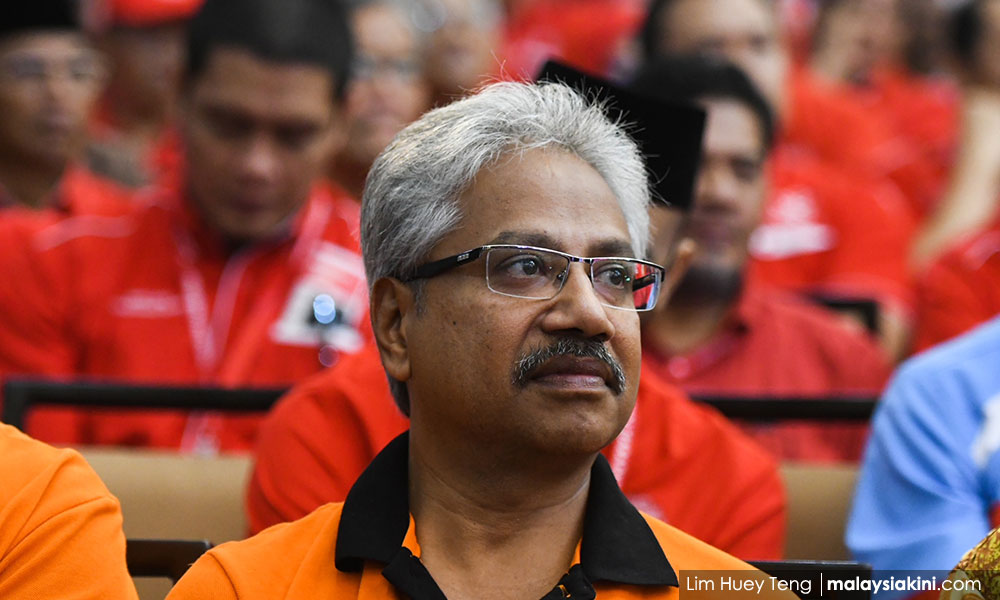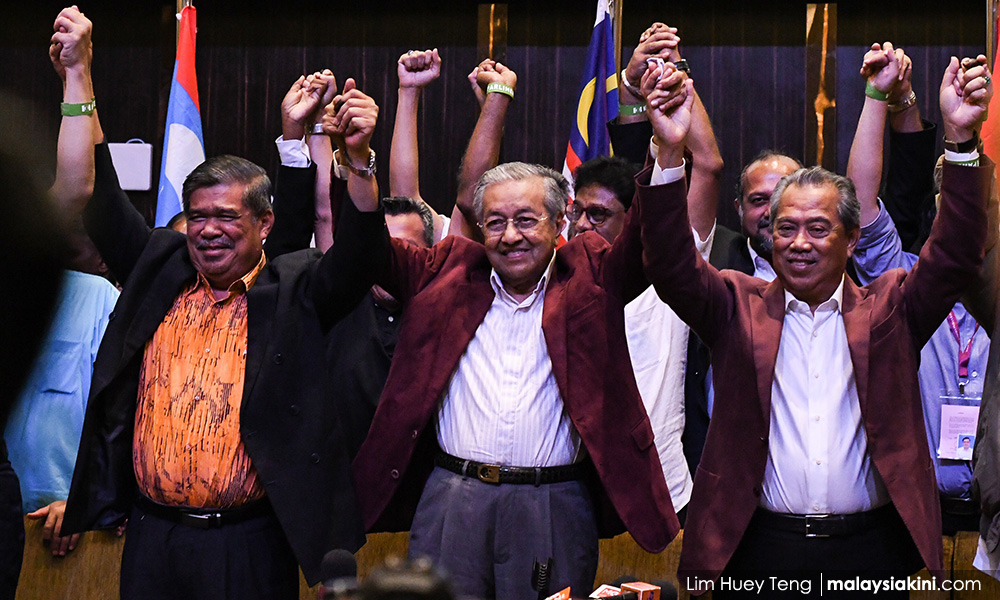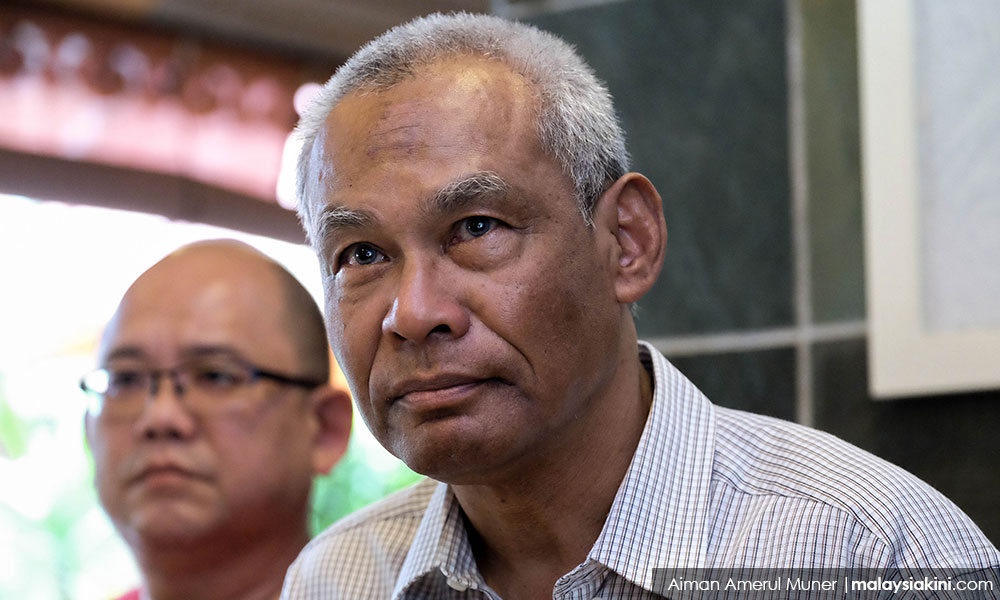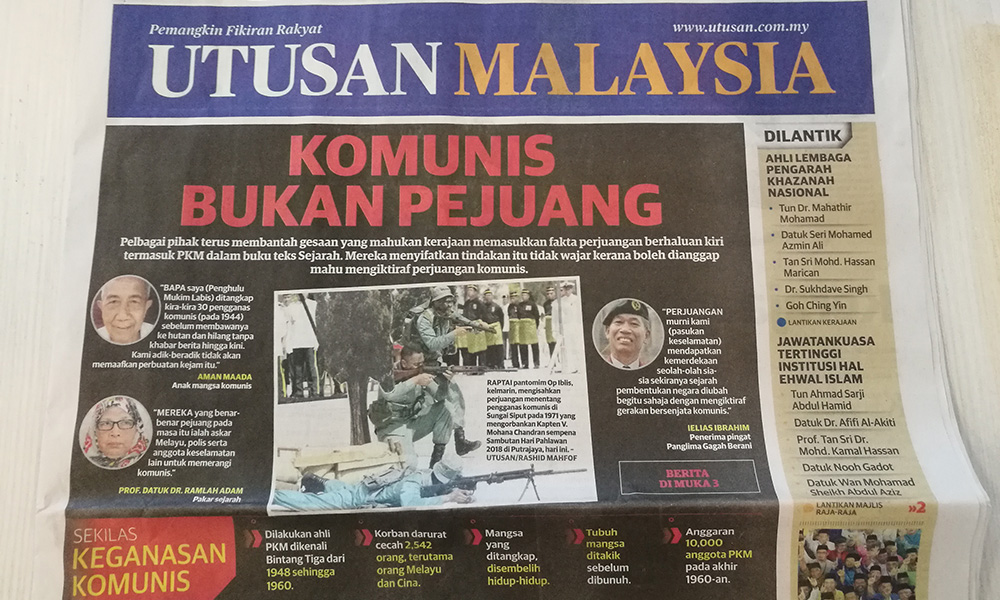
It feels like the portfolio of national unity has traditionally been a little vague.
Our newest minister in the Prime Minister’s Department in charge of national unity and social well-being has kept a relatively low profile thus far, and it is a little unclear what such a minister’s duties are, and what effective versus ineffective measures look like - a nearly blank canvas, in other words.
Here, I would like to briefly explore some ways the new minister could quickly hit the ground running and effectively further the cause of national unity in Malaysia.
Let’s begin sketching out this roadmap by looking at where we are, and how we got here. In doing so, there is no shortage of recent examples we can use as starting points.
My hypothesis is that the following examples demonstrate that the actual issue of contention is often almost immediately left by the wayside, and overtaken by a whole lot of irrelevant baggage.
Basically, issues are often seen through the lens of what feel like ancient tribal conflicts.
In many ways, Malaysians have been trained to do this under decades of BN rule, in which race-based parties decided to see everything through a racial lens, and approach nearly every problem from a racial standpoint.
In the 14th general election, enough Malaysians finally said “Enough!”, and decided that they had had enough of this nonsense tearing up the social fabric of our nation.

Even so, the old ways die hard, and in these last few weeks and months, we have seen many adherents to the old culture attempt to perpetuate this type of divisive thinking.
Two prominent recent examples are the Zakir Naik controversy, and the Unified Examination Certificate (UEC).
Zakir Naik and UEC
In both cases of Zakir Naik and the UEC, the actual issues are often not actually discussed substantially.
Instead, what happens is that the tribal mentality shoots us right past any substantive discussion straight into dividing ourselves along old, oft-repeated battle lines. We end up shouting essentially about how bad the other side is, rather than debate the actual nitty-gritty of the issues at hand.
In the Zakir Naik case, we find those who think of themselves as defenders of Tamil and Hindu identity in Malaysia and those who think of themselves as defenders of Islam all too eager to jump to the “defense” of their tribe against the other.
The UEC matter is similar, with the players being those hardcore advocates of everything Chinese and those who see every other new policy as a attack on Islam and/or the Malays.
The latest in the Zakir Naik saga is former inspector-general of police Musa Hassan (photo) commenting that the Liberation Tigers of Tamil Eelam (LTTE) is still a threat.

The tragedy here is how we seem to keep flogging dead horses. Yes, sympathies for LTTE-like things still exist all over the world, including Malaysia; but that doesn’t mean they are meant to be used as a bogeyman to be brought out every time there’s a vocal Indian we don’t like.
At the extreme ends of both spectra, you find individuals who are uninterested in learning the other’s point of view or finding common ground in the middle, but who are interested in raising their own profile and finding fame by shouting loudly and inciting divisive sentiment in people they think of as their base.
The tragedy is that these are the people who tend to grab the headlines - which of course is not a coincidence, as most things that come out of their mouths are designed for exactly that purpose.
Communism and child marriage
We also see these dynamics in play to a slightly lesser degree in two other recent controversies.
First was a recent forum which discussed communism. Once again, we see conservative elements jump out at the very hint of anyone saying anything vaguely positive about communists, and start to twist present facts into the old narrative of racial conflict. 

Second is a little bit more about politics. In a recent statement, Latheefa Koya had very strong words for deputy prime minister and PKR president Wan Azizah Wan Ismail regarding the issue of child marriage.
I think we are mostly all on the same side here, wanting to seek an end to child marriage as soon as possible.
The wording, tone and timing of Latheefa’s piece however, suggests that the attack has more to do with upcoming PKR elections, than it is about wanting to work together to create real change.
A new approach for a new Malaysia
My last article was about a group of Malaysians that have taken the complete opposite tack.
Instead of chest-thumping and falling over one another trying to get the most sensational headline, Muslim NGO Ikram decided to take the time to listen to what the the United Chinese School Committees' Association (Dong Zong) had to say about the UEC exams, and do some real work in seeking out middle ground between groups with different perspectives.
It is this kind of dialogue that the newly minted national unity minister should use the auspices of his office to organise, encourage and expand.
It is not easy for the middle ground to get attention, especially when the fringes consistently make an effort to be the noisiest.
If a minister would lend the weight of his position and the attention it garners to efforts like this, moderate and issue-centric solutions will be much easier to come by.
The minister should make a conscious effort to seek out groups and individuals with a proven record of foregoing sound and fury in favour of a considered, mature approach that emphasises facts, and sincerely seeks out common ground.
In bringing groups like these together to have frank discussions rooted in the right motivation, the government can play a significant role in building the kinds of bridges that Malaysia has so sorely needed for decades.
The real foundation of national unity
I was once involved in organising a dialogue between Muslim groups and LGBT activists, and I can attest from personal experience that it is through conversations like these that real relationships between actual humans from different backgrounds are developed.
Those relationships from the truest basis of actual social bonds - bonds that transcend the age-old prejudice borne of decades of hate-mongering.

When these people from different backgrounds and worldviews but the same hope for a united Malaysia get together, the possibilities will be limitless.
The solutions they come up with may not please everyone, but I daresay they will provide middle paths that constitute real progress. We can’t expect problems to be solved overnight, but I found these to be really impactful first steps.
More importantly, dialogues like these will form the foundation of a truly united Malaysia, where we are able to start the new habit of focusing on what unites us, rather than the old obsession with what divides us.
What better way for the minister to justify this new portfolio and cement its relevance in today’s Malaysia?
NATHANIEL TAN is eager to serve, and can be reached at nat@renyi.net. -Mkini



No comments:
Post a Comment
Note: Only a member of this blog may post a comment.